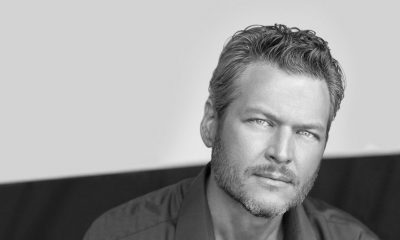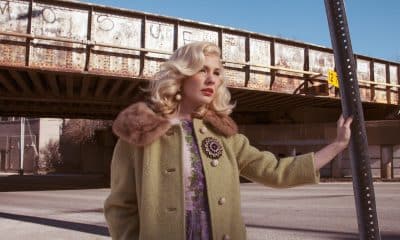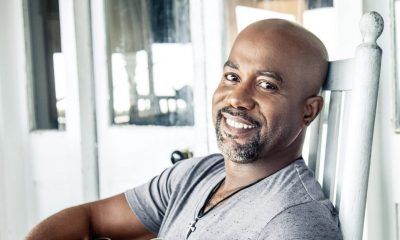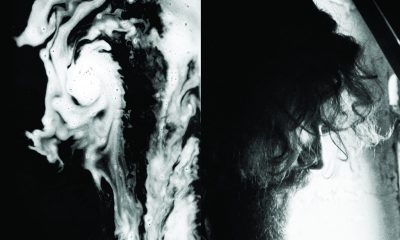Interviews
Caitlin & Will Are Still Surprising People – An Interview
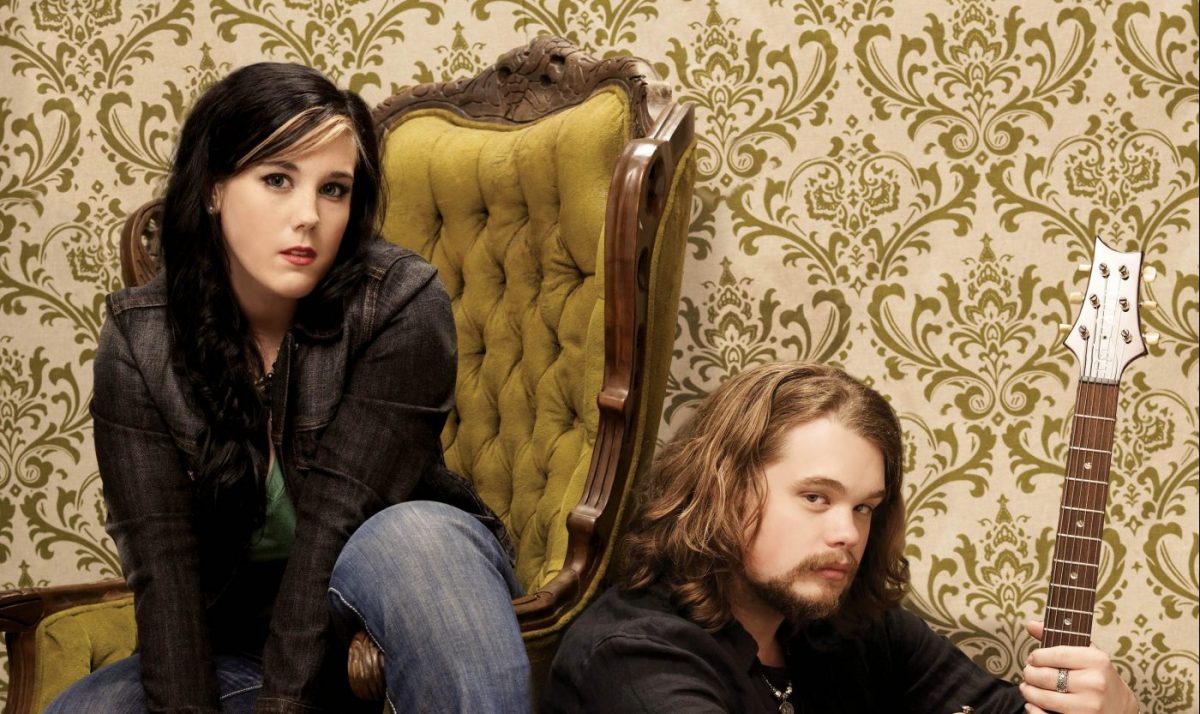
Caitlin Lynn and Will Snyder both entered last year’s first season of the CMT talent competition Can You Duet with the intention of winning. The only catch, of course, was that they never envisioned winning the show together; after being broken off from their original duos, these two then-strangers went on to claim the title (and a Sony recording contract) over the likes of established duos including Joey + Rory and Kate and Kacey Coppola.
A recording contract, however, is just that–an opportunity to record. It doesn’t guarantee that those recordings will ever be released. In this exclusive interview with The 9513, the duo says that they’re still surprising people–a fact that has led the pending release of their debut album Dark Horse.
JIM MALEC: It’s been a little over a year now since your Can You Duet victory, and now you’re major label recording artists. How does that compare to how you thought it would be?
CAITLIN LYNN: It’s been completely different than what I thought, because I thought being on a major record label would mean that we wouldn’t have any creative control. I thought that they would just be like, “OK, here you go, here’s the record we want you to make.” And we’ve had so much more control over those things than we expected.
Will and I are really good about knowing when to say, “You guys know more about this than we do, so we’ll let you decide on this.” Or, you know, to say how we feel about something and then ask for an explanation. But it’s still been a lot different than what I thought it would be. I’m pleasantly surprised.
JM: Why have you been afforded that extra creative freedom?
CL: I don’t think they expected us to make a great record. With a lot of these TV shows–and no one knows this, by the way–record labels have contracts that say they’ll let you make the album. That doesn’t mean they’ll release it, necessarily.
I think everybody in the industry–and not just at the label, but everybody–just doubted that we would produce an album that was worthy of being released. We didn’t know, going into recording the album, that they were possibly not going to release it. We always had the thought that this was going to be released. We always thought it was going to be amazing.
We found out later that if it wasn’t a great album, we wouldn’t have had a chance of really getting it out there. But we made the album that no one expected. I think people started looking around at each other and saying “Wow.” And that is the highest form of flattery for Will and I.
JM: Will, what’s your take on your unexpected freedom?
WILL SNYDER: I think that going into it, since it was expected to not be taken as seriously as it is now, that it was never an issue what we did. It was just, you know, “Go for it. Pick the songs you guys like and then make an album.” That was the plan. We’d make it and then they would send us on our way.
But we went in and we took it very seriously from day one. There were a thousand songs we listened to and turned down for the album. When we went in there and actually started cutting and putting stuff together, it got people’s attention–especially Joe Galante’s. So we started having meetings with Joe, and before we knew it we were signed on Columbia. They moved us from BNA to Columbia.
We’ve definitely been open to their opinions, and I think as long as we’ve done what they’ve asked us to do they’ve been really good about meeting our needs and being flexible with our ideas and supportive of the things we’re trying to come up with. They want us to be a part of the project too, just for the fact that, obviously, if we pick music and do things that we believe in and that we love, when we go up on stage and sing this stuff we’re going to be more in-depth with it. It’s going to be a more believable performance, because who would want to do music every night and make their living off of stuff they don’t like?
JM: What are some of those things that the label asked you to do?
WS: Right at the beginning Joe had a meeting with us and said, “If we give you guys a time to be here, and we say be here, show up.” I think it’s a courtesy kind of thing. You’ve gotta be flexible with the people you’re working with. You gotta give them the freedom to be who they are and do their thing, too. It’s kind of a you scratch my back and I’ll scratch your back kind of deal.
JM: I think most readers remember that you both entered Can You Duet with different partners. On the show you were snatched from those originals groups and paired together. And obviously, things worked out musically. There was definitely a connection between the two of you. But despite that connection, you were strangers. You didn’t know each other’s habits, personalities, likes and dislikes, outlooks or beliefs. What was it like making a record, going out on the road and planning a future together with a person you hardly knew?
WS: There have been moments when it’s been extremely difficult, and there’s been moments when it’s been like heaven. You have all that. Going in to it, it was possibly the wildest thing I’ve ever lived and gone through, just for the fact that the moment your established partner is ripped right out from under you…
It’s like being married, and then and they divorce your spouse from you and put you right back into a dating game trying to find another spouse. They’re trying to find an immediate connection, and you’re like, “How is the ever going to work?”
I think we were both very skeptical of the whole thing, right after getting our partners ripped out from under us. Are we gonna stay in this? What are we gonna do? I can only speak for myself on this, but my whole goal at that point was to see how far I could get on the contest. I wanted to get a connection in Nashville, hoping that might lead into something else. And it just so happened that Caitlin and I were blessed enough to be put together and to have it be like a match made in heaven.
And I’m not saying we haven’t had hard times. We were getting to know each other and discovering each other while we were making this album. It was all very fast. But I think the breath of fresh air was that we realized everything was coming together perfectly. It was unreal. We definitely can stand back and be proud of all the stuff we’ve accomplished over the last year.
CL: For me, it was easier. Because musically I could see we clicked. We were almost the same person musically. So I knew that making the album was not going to be difficult. I knew that making the album was going to be the easy part. Getting to know him was going to be the hard part. It was going to be hard getting to know his quirks, to know if I was doing something that was going to make him upset. Or for him to know he was doing something annoying to me. He’s right–it’s like being in a marriage. I think the personal connection we have was harder to find than finding our album.
But it was comforting to know that musically we were set in stone. We are musical soul mates. We always say that, and I completely one-hundred thousand percent believe it.
JM: It sounds like you have a great relationship now.
CL: Yeah. If he were really into like, Hip Hop or something then I might be like, “Uh, this might not work.” But musically we were so perfect that is was easier. We knew that if it didn’t work out personally–and it does–musically we were going to be fine. We would be able to come together, do our music, and then be separated. But it just so happens that we get along great. We love each other. I love him like a brother. And the music–it’s some of our best stuff each of us has ever done. It just took an unconventional way to find that.
JM: I was out of the country when the show aired. So the first words I ever heard from Caitlin & Will were, “I was wrong, but you were mean.” And I have to tell you, I thought that was one of the most honest and hard-hitting lyrics I had heard in quite a while. “Even Now” was a truly great song. But you went out on your radio tour, and radio started asking for “Address in the Stars” instead. So, you and your label listened to the feedback and changed course. “Address in the Stars” rose up to #42. And then the momentum stalled. It peaked there.
Is it strange that radio has been reluctant to embrace the very song that they asked you to release?
CL: Honestly, I don’t look at the charts. Not anymore. I used to. But I really think that there are no coincidences. I know that everything happens for a reason. We are by no means giving up on the single. We know that Sony, Columbia our promotion team, Joe and everybody at the label is not giving up on the single. Honestly, I don’t even think about it. What’s meant to be is meant to be. And I think the fact that Sony has backed us up so much and is still gung-ho about “Address in the Stars” speaks volumes to me.
So I’m not at all concerned about it, because I believe in everybody around us. And I believe in the song. We just did a video for it. I feel so confident about it. And if everything was over tomorrow for me and Will, we’d still be able to look back on it and say, “That was amazing.” It would suck, but we would know that we did everything we possibly could and made a lot of great friendships along the way.
JM: Why did you settle on the title Dark Horse for the album? Do you guys see yourselves as dark horses?
CL: Aimee Mayo called us the dark horse on the show, and we actually named the album Dark Horse before we even wrote the song. Which is not how it’s usually done, obviously.
Will and I saw ourselves as the dark horse on the show. We never thought we could win, especially looking at all those established duos that were so amazing. We never thought it would be possible. So yeah, I think we definitely counted ourselves out until the end, when we kinda just realized, “Wow.”
JM: Speaking of Aimee, “Address in the Stars” was written by you and her along with Chris Lindsey and Hillary Lindsey. Four songwriters. Take me into the room where that song was created. I know that it was inspired by your Aunt, but take me back into that moment. How is it that four individuals can work together, playing off each other in real time as they create a piece of art?
CL: I actually tell a lot of people the story about how that song came into being, because I think it’s important for people to understand how songwriting goes. You know, every single songwriting session is different. Every single one. Every single song you’ve ever heard was created in a different way then the next one.
With “Address in the Stars,” we were in Chris and Hillary’s studio. I was sitting across from Hillary; Chris was on my right and Aimee was on my left. We were talking about writing a song that was just fun. Something that had sort of like a “Last Name” vibe. Just a strong female going out on the town or something, just a woman breaking up with her boyfriend and going out to have a good time knowing it’s not the end of the world. And I don’t remember how, but the conversation literally changed.
Aimee, Chris, Hillary and me, we will talk for about four hours and then in the last 15 minutes of us getting together, we’ll write the song. Somehow, we started talking about my Aunt, and we started talking about Amiee’s dad and Chris’ sister. And Hillary has lost loved ones. We started talking about all that and the song literally came out in like…it just came out. We didn’t even know what hit us.
Aimee’s a great lyricist. And Chris just started playing something while Aimee was playing with some words. Hillary’s a great melodic being–she has amazing melodies in her head. So Chris started playing something and Aimee started talking and Hillary started singing. I was writing more lyrics. It was basically like going down and sitting in a restaurant and having a conversation and writing everything down and then getting a guitar and writing about it. It was a crazy process, because I felt like Aimee knew what we were doing but Chris, Hillary and I were just very emotionally disconnected from it. We had to be. If we had all known what we were doing we would have all broken down and just started sobbing. We would never have gotten it finished.
Afterward, I wanted Hillary to lay down the vocals for it. She’s got such a great voice. An amazing voice. I wanted to have that as the demo. She said no, she wanted me to sing it. So I ended up singing the demo for it in Chris’ vocal booth. I could see Chris and Hillary and Aimee while I was singing. So we demod it, and as soon as we were done we all kinda just looked at each other and broke down a little bit in our own individual ways.
JM: So that experience was quite a bit different than the usual.
CL: Absolutely. I mean, there are some songwriting sessions that I suck on. There was one time, for example, when I was writing with a songwriter who I won’t name, but who wrote this amazing song that just everybody knows. All I could think about while I was writing with him was about that song. I was singing it in my head.
At the end of the session I just blurted out, “Can you tell me about that song?” I couldn’t concentrate. The writing session was a complete disaster. But you have those. And you have really good ones. And I have discovered now why these great writers have their niche and have these certain people who they write with. It’s about a comfort level.
JM: Will, you weren’t a part of that “Address in the Stars” experience. Did you get a chance to write with Chris, Aimee and Hillary?
WILL: “Dark Horse” was a song that Chris and Aimee and Caitlin and I collaborated on. But I love writing around town. I love getting with different writers and booking an appointment with them and trying to get to know them so it doesn’t feel so contrived. I think that was the awkward part of going to write in Nashville. It was weird booking an appointment with someone you’ve never met before and trying to be creative with them. It’s just really weird.
But I’ve found that if you find people you respect, and you know what they’re good at and you learn their strengths, when you have an idea that pops into your head you know who to go to. Sometimes my first thought will be like, “Oh, this is so a song a I should write with Chris.” So I’ll give Chris a ring and be like, “Hey man, I’ve got an idea that me and you need to get together on and write.” Occasionally you hit the jackpot, where you write something you’re extremely proud of. And sometimes you write a song and you’re just like, man, that was a terrible session.
But it’s totally a learning process. I think Caitlin and me both were used to writing on our own and writing with our partners–our original partners. Now we’re in a whole different world where we’re exploring writing with different people and trying to discover what we’re good at and what we’re not good at. And it’s a wild little thing. But we’re definitely both getting very good at collaborating with different people.
JM: When you look at your songwriting in comparison to Caitlin’s, would you say that you have different strengths? And do those strengths compliment each other?
WILL: I think we share a lot of common ground with song ideas, just because I don’t think we’ve had enough time in the business for our songwriting to be affected by the business. I sometimes like writing with newer writers just for the fact that they’ve not been in the business forever, and so they’re out to think more freely than maybe some of the other writers who know what radio will play and who want to try and target certain audiences and all of that. I think you can get wrapped up in all of that stuff too much and forget about the passion and about just making great music.
That’s one of the things I love about our producer Chris Lindsey and his wife, Aimee. They’ve really supported that. They’re not about, “This is what you’ve gotta write,” and “This is the format you’ve gotta be.” That is something Caitlin and me both see eye to eye on–we love these people because they wanna make our path in songwriting totally our own fingerprint. We don’t wanna try to sound like somebody else.
JM: I want to ask you a little bit about that format that you mentioned. Between “Even Now,” “Address in the Stars” and “Born Again,” we could say that your digital EP was a little more ballad-heavy than the material we hear from most new artists. How did you resist the temptation of tempo, tempo, tempo? A lot of new albums come out these days and have nine tempos and one ballad.
WILL: I know, and that kinda kills me. I mean, I’m all about tempo. I love tempo songs. They’re definitely fun to do. I mean, it’s good to have upbeat music, but what we focused on with Dark Horse was getting some stuff on there that when people listen to it they just get drawn in by the truth in it, by the realness in it. And by the fact that it’is something you can relate to. We definitely wanted to put a few tempos on there. The record label was saying, “We’re looking for tempo, we’re looking for tempo, we’re looking for tempo.” We definitely made a few different tempo songs. But some of the best stuff we brought in tended to be more towards the ballads, and that’s fine, you know, if it’s good music. Good music is good music. At the end of the day, that’s what we want on our album.
JM: I understand that you got to play some guitar on the album.
WILL: A lot of the lead guitar stuff.
JM: That’s pretty unusual for a new artist, especially considering your origins. Hell, a lot of bands bring in outside help to play on their records. Did anyone ever come to you and say, “You know Will, we’ve got guys we can bring in. There’s no reason to have you do this.” Did anyone ever try to tell you “no?”
WILL: I think at the very beginning it was kinda that concept, because, you know, like you said, we came off a television show. The thing you gotta remember is that we didn’t come off the show as writers. We didn’t come off the show as musicians. We came off the show as singers. So that was really the only thing people were interested in getting to know us as. They wanted to hear us sing. And we know, going into the record deal, that we had other talents that we wanted to bring in other than just singing.
Caitlin’s been writing, and I’ve been writing. I mean, I’ve been coming to Nashville as a writer for a few years before we did Can You Duet. So whenever the opportunity arose to try to show what we were made of we definitely ran with it. And we were fortunate enough to get some stuff on the album that we had written.
JM: In a perfect world, of course, image, size, color and all of these descriptors would be irrelevant. The music would be the defining statement about an artist. What do you hope your music makes as your defining statement?
WILL: When I was 13 and I first started listening to Lynyrd Skynyrd and Stevie Ray Vaughan and all that stuff, the one thing that pulled me in was the music and the layout and how it was not only great music, it was also inspiring music. It was the stuff that made you want to sing. It was stuff that made you want to pick up an instrument and learn how to play.
That’s what I want this album to be. I want little kids learning how to play guitar to see the music video and say, “Hey, I want to be that. I want to learn how to play this instrument like that.”
JM: So what does is mean to be a country music singer in 2009?
WILL: I think that at the place where country music is right now, being in the middle of it and being able to look around and see what all is going on, a lot of the people who we know and look up to are starting to kinda fade out a little bit. They’re starting to maybe explore their own personal lives a bit and maybe not do as much music. And so we’re seeing a whole new generation rising in country music right now. And it’s kinda wild to be a part of it, just for the fact that it’s like all of these new acts kinda control where it’s going. So I feel like it’s our responsibility to do country music justice and be loyal to the actual genre, not to be something other.
There’s a lot of people out there that love good country music. And we can’t forget that that’s what we are. We’re not rock and roll, we’re not anything other than country. It’s cool to bring in our rock and roll influences and pay our respects to people of other genres who we’ve grown up listening to. But at the end of the day we’ve gotta be loyal to what we are. Because the torch is being passed to all of these new groups. And it’s an honor to be one of them.
- Lists13 years ago
Top 10 Country Music Albums of 2010
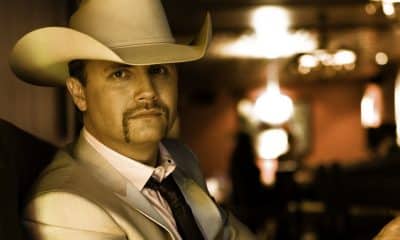
 Interviews5 years ago
Interviews5 years agoJohn Rich – The Interview
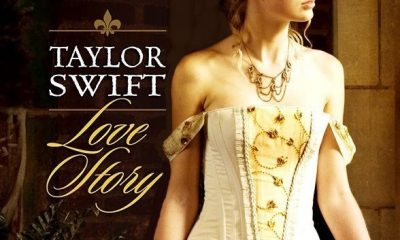
 Song Reviews16 years ago
Song Reviews16 years agoTaylor Swift – “Love Story”

 Interviews5 years ago
Interviews5 years agoHoneyhoney on Hiatus: Revisit our 2008 Interview with Suzanne Santo
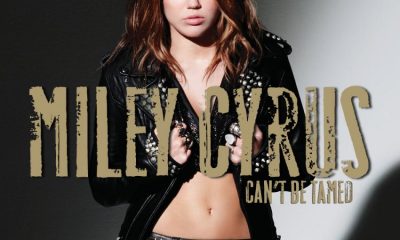
 Album Reviews14 years ago
Album Reviews14 years agoAlbum Review: Miley Cyrus – Can’t Be Tamed
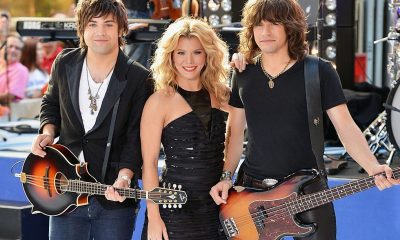
 Song Reviews6 years ago
Song Reviews6 years agoThe Band Perry – “Hip To My Heart”
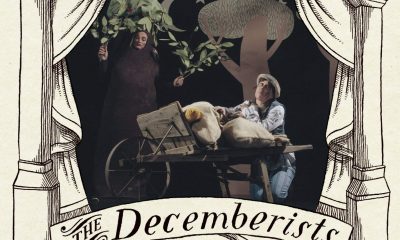
 Columns5 years ago
Columns5 years agoThe Link Between Folk Music’s Past and Present
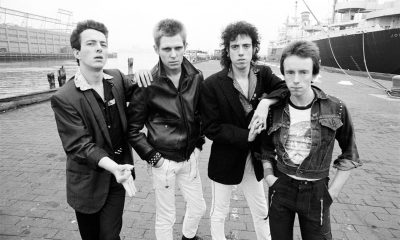
 Columns5 years ago
Columns5 years agoIs Marketing Killing Rock and Roll?


